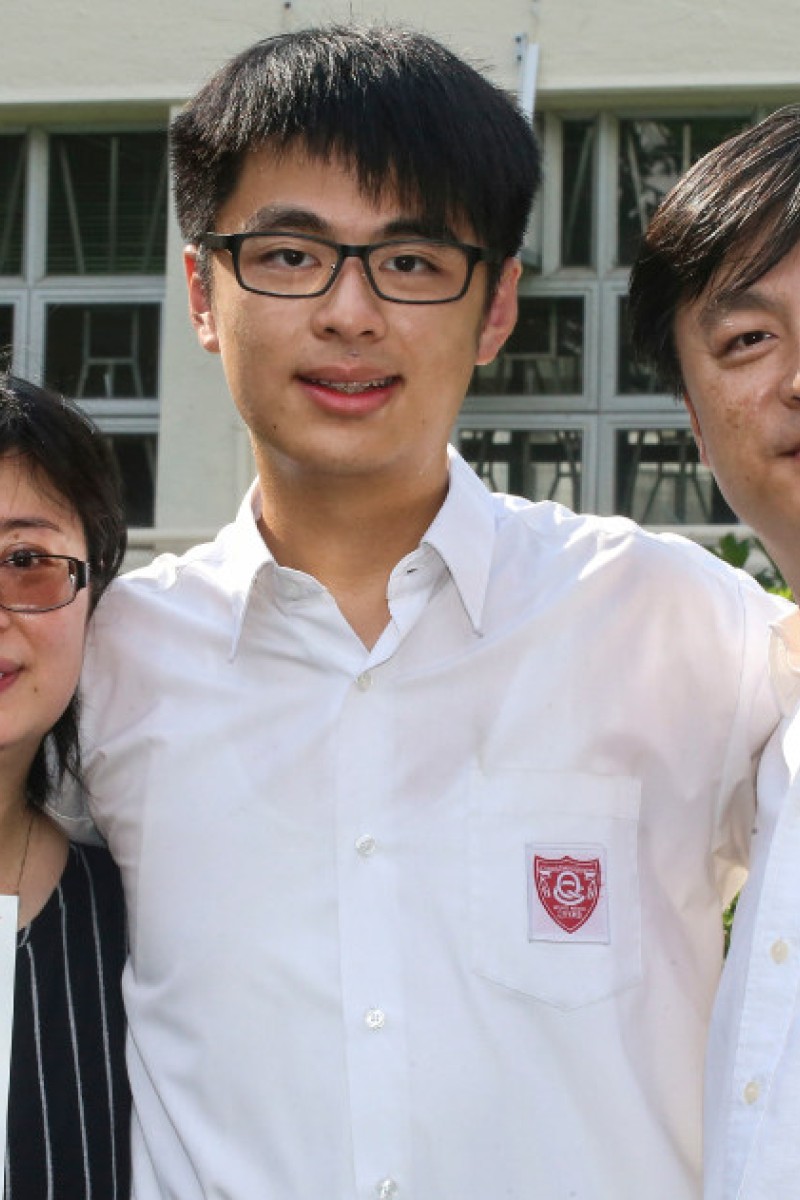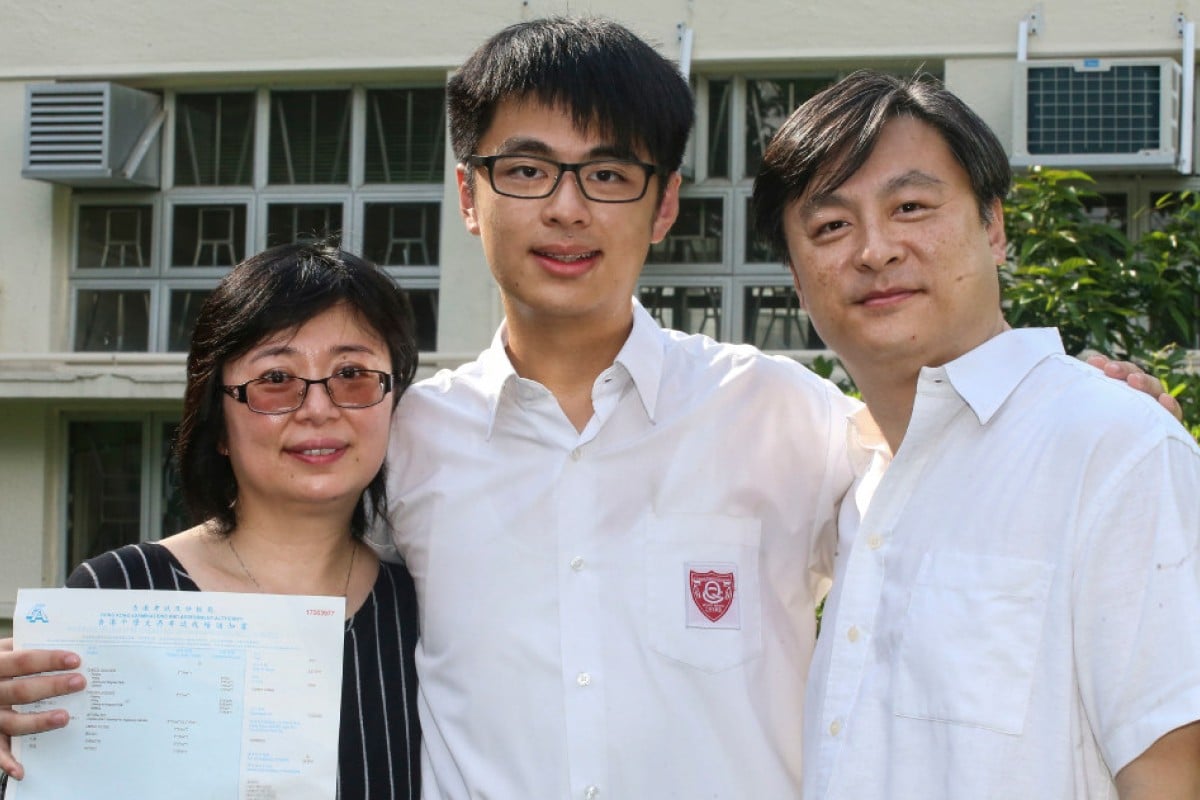
3 tips from HKDSE top scorers to help you revise smarter and get better grades
- Getting top scores on the public exam seems like a faraway dream for a lot of students, but it’s not an impossible task
- See what advice these students had to offer
 Top 2017 HKDSE scorer Richard Choy Wai-chak (centre) has tips that may help you!
Top 2017 HKDSE scorer Richard Choy Wai-chak (centre) has tips that may help you!Almost every student dreads DSE season and the seemingly endless revision and stress that comes with it. How can they be expected to survive all the pressure, let alone manage to score well on the actual exam? What strategies can help you achieve a score you’d be satisfied with?
Young Post asked a top scorer from the 2017 DSE, Richard Choy Wai-chak, a former student at Queen’s College, to offer his top three tips for studying and achieving a score you deserve.
The DSE is not intended to test how smart or quick you are, but rather how well you take the exam.
Are mock exams to prepare for the HKDSE really that useful?
Richard’s first tip: learn the specific types of strategies that will help you deal with the different types of questions in the exam, as opposed to cramming loads of information into your brain.
As crucial as knowing the facts are, it is more important that you familiarise yourself with the different kinds of questions you might come across in the exam, by doing past papers.
The official past papers issued by the Hong Kong Examinations and Assessment Authority, available in bookstores around Hong Kong, include past exam questions and model answers.
Studying past papers is key to doing well on the exam. Photo: Shutterstock
Another reason you should do practice papers is to get a feel of what it will be like to sit the actual exam. A vital part of revision should be getting into the test-taking frame of mind. “If you try to switch from a revision mentality to a test mentality on the day of the exam, it will not be beneficial to you. The brain needs time to change and adapt to that specific way of thinking.”
Also, try to complete the past papers in the suggested time with no distractions. This will help you improve your time management.
Richard, like many other Hong Kong students, received tutoring for certain subjects to prepare for his exams. His second tip is not to count these tutorial classes as revision.
Lower your HKDSE exam stress with simple hand reflexology you can do at anytime
“The greatest misconception about tutoring is that it can replace your revision. If your tutor is providing you with similar materials that you get from school, then they are failing in their job. Tutoring should be supplementing your revision at home and school; it should give you a chance to try out what you’ve learned.”
Richard says not to spend too much time on questions that seek facts as answers; you should have already done these in school. Instead, focus on the more challenging questions that ask you to apply theories you’ve learned in class.
With all the revision and practice exams you need to do, you might feel like you don’t have time for anything else, but you do need to maintain a balanced life.
What to do when there's a dominant candidate taking over your HKDSE Chinese exam group discussion
While a bigger portion of your time will be dedicated to your studies in the weeks leading up to your exams, you must also make sure you are eating regularly and are getting enough sleep.
Richard’s last piece of advice is that you shouldn’t feel guilty about taking a break from studying.
For Richard, playing sports and hanging out with friends are his favourite ways to unwind and maintain a good balance.
“Some people think that during revision season everyone should just study alone, but I think that is counterproductive. Having someone listen and share your concerns helps you feel like you’re not alone,” Richard says. “We are all human and need a social life.”
